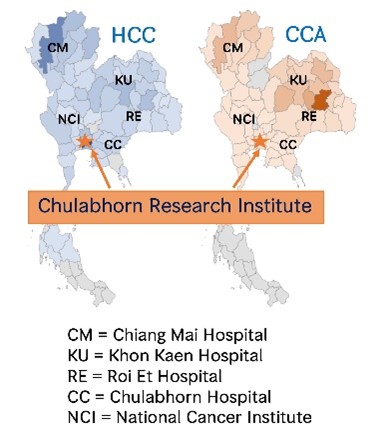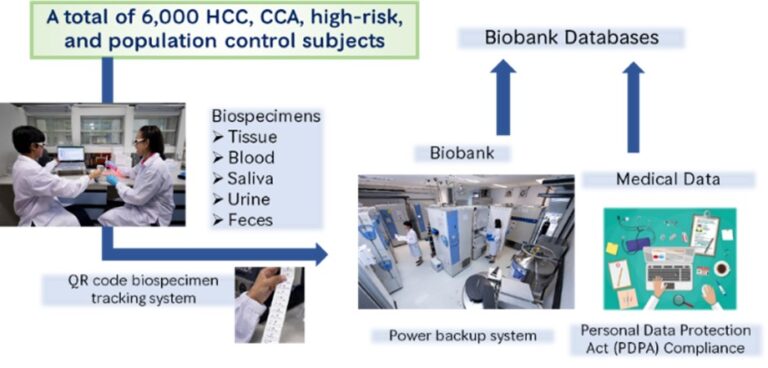Establishment of biorepository as platform for biomedical research
Chulabhorn Research Institute had been collaborating with Chulabhorn hospital, the National Cancer Institute (Thailand), Khon Kaen University, and Chiang Mai University with the aim to alleviate the suffer of liver cancer patients and the tumor biobank for liver cancer was set up to provide resource for future investigations. Since 2008, CRI, participating Thai institutions and the National Cancer Institute (Bethesda, USA) has established the Thailand Initiative on Genomics and Expression Research for Liver Cancer (TIGER-LC) consortium. The goal is to perform a comprehensive large scale genome-wide and candidate association study to identify and validate genome factors and tumor biology that affect liver cancer risk progression and response to therapy.


The MOU signing ceremony of TIGER-LC between CRI and collaborators
The study aims to include 6,000 volunteers which are 1,000 HCC cases; 2,000 CCA cases, 2,000 patients with chronic liver diseases arising from hepatitis B and or hepatitis C infection, alcoholic cirr hosis, and liver fluke carriers which are considered high risk non-carrier cases, as well as a sample of 1,000 healthy population-based controls recruited at our collaborating institutions and Chulabhorn hospital. Information from questionnaire, clinical data and specimens such as blood, urine, saliva and tissue were collected with the same efficiency and standard and delivered to CRI. The biobank and database system are set up at CRI to accommodate a large amount of samples and data under an alarm system to prevent power outages with backup generator. QR barcode system is used to link all these data with all information of biological specimens. For safety of data and specimens’ purposes, the researcher team keeps vigorous data backups and error checking routines.
A large-scale biobanking system for liver cancer biospecimen and data collection
Our biorepository will serve as a rich resource from which numerous investigations can follow, spanning a breadth of disciplines, including genomics, epidemiology, functional and clinical studies. This effort will enhance the scope of our liver cancer knowledge-base and allow us to more successfully manage patient care with an outlook towards precision medicine.







